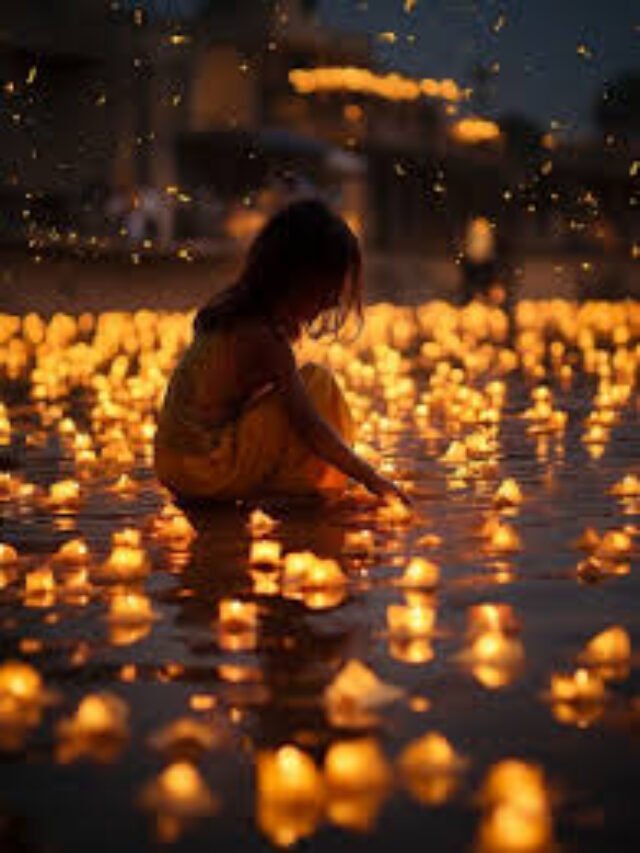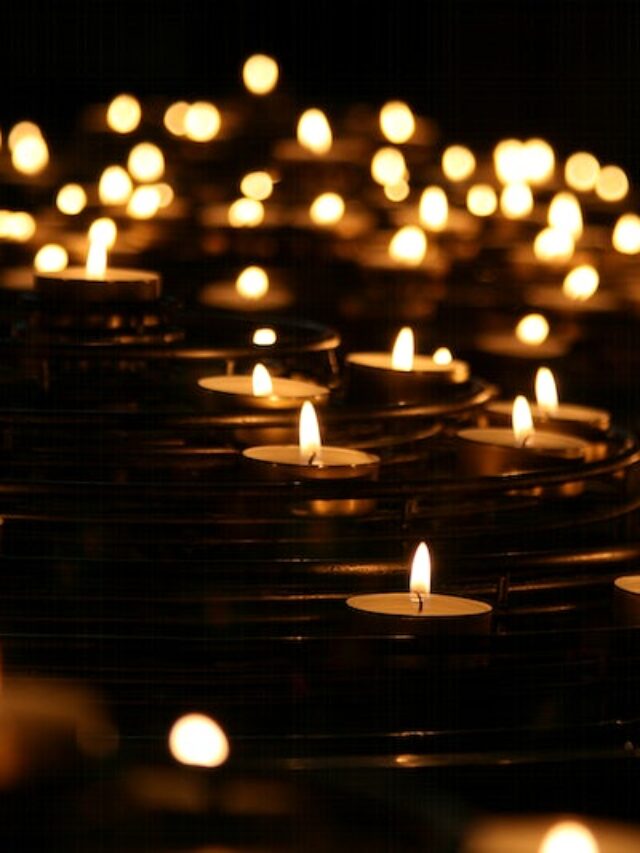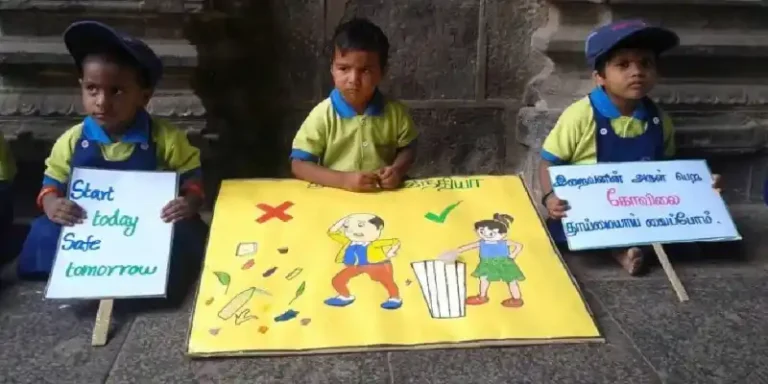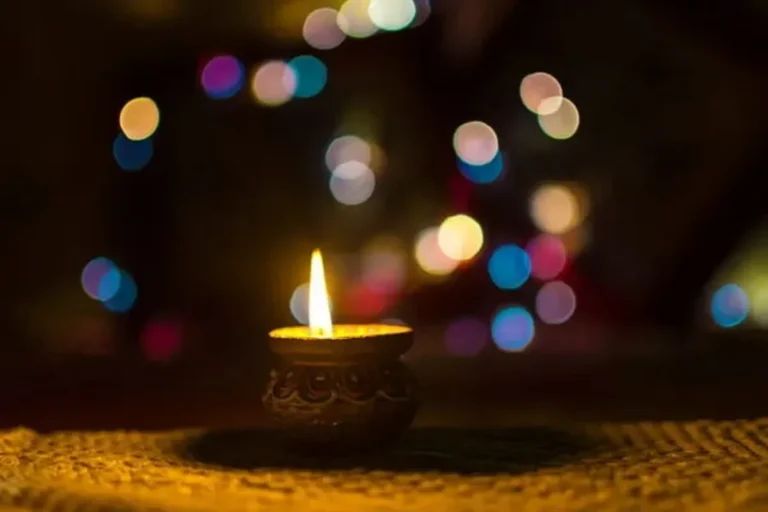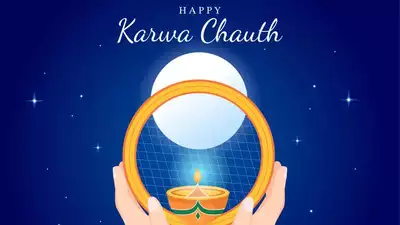Diwali 2023, the festival lights will be celebrated on November 12. Indians across the world celebrates Diwali with great joy and enthusiasm. The festival of Diwali symbolizes triumph of light over darkness. During Diwali people decorate their homes, prepare sweets and distribute to relatives, exchange gifts, light diyas, worship Hindu deities. Diwali is celebrated for 5 days, each day having its own significance, rituals and traditions. The five days are called Dhanteras, Chhoti Diwali, Laxmi Pujan, Govardhan Puja and Bhai Dooj.
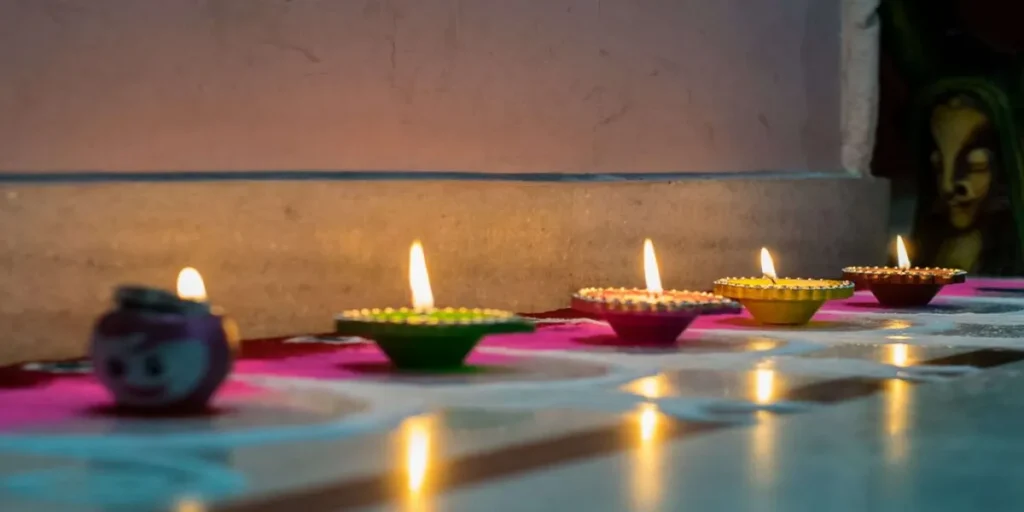
Table of Contents
Diwali 2023 : Important Dates, Puja Muhurat
Dhanteras
- Date : November 10, 2023
- Puja Muhurat : 05:27 PM to 07:27 PM
- Tithi : Trayodashi Tithi
Chhoti Diwali
- Date : November 11, 2023
- Puja Muhurat : 11:05 PM to 11:56 PM
- Tithi : Chaturdashi Tithi
Laxmi Pujan
- Date : November 12, 2023
- Puja Muhurat : 05:19 PM to 07:19 PM
- Tithi : Amavasya Tithi
Govardhan Puja
- Date : November 14, 2023
- Puja Muhurat : 05:54 AM to 08:09 AM
- Tithi : Pratipada Tithi
Bhai Dooj
- Date : November 15, 2023
- Puja Muhurat : 12:38 PM to 02:53 PM
- Tithi : Dwitiya Tithi
Significance of Deepawali
Diwali also known as Deepawali has many religious and cultural significances. For Hindus, it commemorates the return of Lord Rama to Ayodhya after defeating the demon king Ravana after 14 years of exile. It also celebrates the goddess Lakshmi, the goddess of wealth and prosperity. Hindus believes that Goddess visits homes that are clean and well lit with diyas and lighting, Goddess also brings wealth and prosperity with her. For Jains, Deepawali marks the nirvana of Mahavira, the founder of Jainism. For Sikhs, Deepawali celebrates the release of Guru Hargobind Ji from prison.
Govardhan Puja a day after Laxmi Puja, which marks Lord Krishna saving villagers by lifting Govardhan Hill from Lord Indra’s wrath.
Diwali Traditions and Celebrations
Diwali is celebrated with a variety of traditions and rituals. Some of the most common include:
- Cleaning the home: Hindus believe that Goddess Lakshmi visits homes on Diwali, so it is important to clean and decorate the home in preparation for her arrival.
- Lighting diyas: Diyas, or clay lamps, are lit all over homes and businesses on Diwali. The light of the diyas is said to represent the victory of good over evil and knowledge over ignorance.
- Worshipping Goddess Lakshmi: On Diwali night, Hindus pray to Goddess Lakshmi for wealth and prosperity. They also offer her sweets and other offerings.
- Exchanging gifts: Diwali is a time for giving and receiving gifts. Families and friends exchange sweets, money, and other gifts on Diwali day.
- Fireworks: Fireworks are a popular way to celebrate Diwali. The bright lights and loud noises are said to scare away evil spirits and usher in good luck.
Diwali in Different Regions of India
Diwali is celebrated in different ways in different regions of India. In North India, the festival commemorates the return of Lord Rama to Ayodhya. People light diyas and decorate their homes with flowers and rangoli designs. In South India, Diwali celebrates the victory of Lord Krishna over the demon Narakasura. People wake up early on Diwali morning to take an oil bath and wear new clothes.
An Eco-Friendly Diwali
In recent years, there has been a growing movement to celebrate an eco-friendly Diwali. This is due to concerns about the environmental impact of fireworks and other Diwali traditions. Some ways to celebrate an eco-friendly Diwali include:
- Using fewer fireworks: Fireworks can pollute the air and create noise pollution. If you do choose to use fireworks, opt for fewer aerial fireworks and more ground-based fireworks.
- Using eco-friendly diyas: Diyas made from clay and vegetable oil are more eco-friendly than diyas made from plastic and kerosene.
- Recycling and composting: Diwali generates a lot of waste, such as food wrappers and diyas. Make sure to recycle and compost as much waste as possible.

